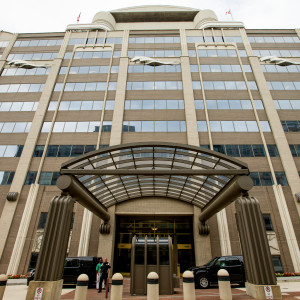Mounting concerns about the Federal Communications Commission’s proposal to update the Lifeline program and include Internet could mean last minute changes to the subsidy for low-income Americans ahead of next week’s vote.
During a congressional oversight hearing Tuesday FCC Commissioner Mignon Clyburn — a supporter of the reforms who typically falls in line behind the agency’s Democratic majority — said her “office has been inundated with concerns about the call for minimum standards, particularly for mobile voice.”
Earlier this month the FCC released a fact sheet on its proposal to let low-income Americans apply the $9.25 monthly “ObamaPhone” subsidy set aside for landline and wireless telephone service to broadband Internet. According to the agency, the plan is designed to encourage service providers to offer bundled packages including broadband, cable and telephone.
However the plan also slowly phases out the subsidy for voice-only service until it no longer applies at all by December 2019, and establishes minimum service standards of 10 megabits-per-second download speeds, 1 Mbps upload and a 150 gigabytes monthly usage allowance for wireline broadband.
Mobile standards require 500 megabits at 3G, increasing to 2 gigabits-per-month by the end of 2018, unlimited minutes and voice-only support until the end of 2019, after which they’ll have to offer broadband as part of any supported device
The standards have providers, public interest groups, commissioners and staffers at the FCC itself concerned they could incur out-of-pocket costs for consumers that could leave many of them without service entirely — especially as phone-only is phased out over the next three years.
Providers themselves say the vast majority of Lifeline subscribers rely on the subsidy to cover all of their telephone expenses.
“Implementing an unlimited voice requirement as of December 2016 would effectively eliminate the free wireless Lifeline option – an outcome that would be hugely disruptive to millions of Lifeline subscribers,” Sprint wrote in comments to the FCC this week.
Though generally supportive of the move, the White House raised similar concerns in its own comments to the agency after the plan was announced.
“Rural and other areas with limited service options may fall further beyond the digital divide if providers are unwilling or unable to meet the commission’s minimum service levels,” the Obama administration wrote to the FCC. “Therefore, the commission should approach minimum broadband service standards with caution.”
Gigi Sohn, a counselor in FCC Chairman Tom Wheeler’s office and a former president of Public Knowledge — one of the public interest groups lobbying in support of the plan — acknowledged the concerns during an event to promote the plan at New America’s Open Technology Institute Wednesday.
“We believe that Americans must have access to broadband as well if they are to participate fully in today’s society,” Sohn said, adding the FCC will reexamine the market in three years and “preserve a subsidy for mobile voice if it is deemed necessary” with a “safety valve” built into the plan.
The former lobbyist said the agency is still confident the mobile market will meet or exceed the minimum standards by then.
“Finding the right balance between robust service and affordability is difficult, and we continue to talk to a variety of stakeholders on this issue,” Sohn said. “Our goal … is to allow low-income Americans to take full advantage of the myriad opportunities access to broadband brings while ensuring that service remains within their reach.”
“But that objective is unlikely to be fulfilled unless we provide incentives for carriers to offer meaningful broadband to low-income communities,” she added.
Clyburn, the only commissioner vocal about making changes and whose vote is key to passage given the Republicans dissent, said she’s open to making changes.
“But the strongest part of the FCC’s process, one that is the envy of regulators from across the globe, is that our process enables parties to give and receive feedback,” Clyburn said. “If parties believe that the current proposal doesn’t strike the right balance, I have been clear from the beginning that I am open to taking appropriate adjustments, and I plan to live up to that promise.”
The commissioner didn’t say whether she plans to offer any changes of her own ahead of the agency’s vote during its open meeting March 31.

